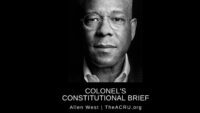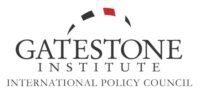The Importance of Accurate Voter Rolls
Any name on a voter registration roll can be voted —- either legally by the individual or illegally by someone else. Voter rolls are generally free to anyone who wants them, so with a bit of researching public documents they provide a virtual roadmap to vote fraudsters.
The most significant problem facing America’s electoral system is the chronic inaccuracy of county voter registration rolls. The situation leaves our voting process vulnerable to fraud, particularly through absentee and mail-in balloting.
Nearly a quarter century after the enactment of the National Voter Registration Act of 1993 (NVRA), a key element of the law —- to protect the integrity of the electoral processes and ensure accurate and current voter registration rolls —- has not been enforced. In fact, during the Obama administration, inaction was supplanted by actions to prevent jurisdictions from cleaning up their registration lists.
In our decentralized electoral system, voter registrations are maintained at the county level and a large and growing number of them do not maintain accurate voter rolls. Despite great advances in technology, most election officials fail to use the latest list maintenance tools and ignore emerging best practices such as inter- and intra-state data sharing.
According to a report by the Pew Charitable Trusts in 2012, approximately 24 million —- one of every eight —- voter registrations in the United States were no longer valid or were significantly inaccurate. More than 1.8 million deceased individuals were listed as voters and approximately 2.75 million people were registered in more than one state.
Increasing reports of noncitizens and other ineligible individuals voting are harming citizen confidence in the integrity of our election process.
The goal must be for candidates of all political parties to be confident that the winner and loser of a particular election are clear and that the election was conducted on a neutral field.
Keeping Voter Rolls Accurate and Up to Date
A modern election is complicated. It requires voter registration and voter roll maintenance for thousands, sometimes millions, of voters. Election officials must use and compare databases, consistently and regularly update information, implement procedures to ensure that all citizens can exercise the fundamental right to vote, and simultaneously take steps to avoid fraud and abuse. Finally, election officials must follow state and federal law, and oftentimes are constrained by technological issues or local public opinion.
Because of the complexity and importance of elections, any list maintenance system or program must include consistent and well-articulated policies and procedures. These are necessary for several reasons:
- to ensure equal and consistent treatment of all voters;
- to ensure the same steps are followed every time;
- to minimize human error and forgetfulness;
- to ensure consistency in the face of personnel turnover;
- and to enable election officials to examine policies and procedures to identify deficiencies and problems.
Any general program of list maintenance must include written or online training programs, written or online policies and procedures, and adequate recordkeeping and reporting to allow for later examination, analysis, or audit. They must:
- Develop written training materials for staff engaged in list maintenance activities.
- Develop written policies and procedures for list maintenance activities.
- Ensure that key office personnel, to include the supervisor of elections and the director of voter services, are familiar with the information and reports filed with the secretary of state regarding list maintenance activities.
The Voter Roll Toolbox
Federal law, the NVRA, requires county election supervisors to “conduct a general program that makes a reasonable effort to remove the names of ineligible voters from the official lists of eligible voters.”
No single list maintenance activity can reasonably address all the potential problems of inaccurate and incorrect voter registration data. However, there are a number of tools and reasonable procedures that county election officials should use to ensure the accuracy of their voter rolls. Among them:
Driver’s License Information
One of the most powerful tools available for obtaining accurate address information and removing duplicate voter registrations is driver’s license information. The comparison between these two state databases —- voter rolls and driver’s licenses —- is far and away the most powerful tool for cleaning and maintaining voter rolls.
The Department of Highway Safety and Motor Vehicles provides information through the Driver and Vehicle Information Database (DAVID) system, which is free for election supervisors to use.
Social Security Death Index
The most accurate way to ensure that deceased voters are removed from the rolls is by accessing the Social Security Death Index. These data are available on a monthly and cumulative basis and both types should be used. For deceased voters, voter rolls must be periodically compared to a cumulative index of deceased voters to remedy past errors and weed out attempts to register deceased voters.
Jury Notices
When called for jury duty, people will sometimes seek to recuse themselves because they no longer live in the jurisdiction or are not a citizen. Likewise, relatives or friends may inform the court that the person called for jury duty has died. This is all extremely valuable information to help maintain voter rolls. The information is a direct admission of ineligibility, or in the case of a deceased person, the information comes from a highly credible source. The state legislature and chief election official should establish a regular transfer of jury questionnaire data between the county and/or municipal court system and local election officials.
Voters Who Have Moved
We live in a very mobile society, so a prudent measure to assure voter roll accuracy is to use nonforwardable mailings sent to all registered voters in the county, both active and inactive, to identify registrants who may have moved.
The United States Postal Service (USPS) provides national change of address (NCOA) information to allow automated verification of addresses for registered voters. The NCOA database consists of change-of-address requests submitted by individuals to USPS when moving. A number of private companies also provide services to track address changes.
The NCOA database identifies the address change of voters and the election jurisdiction sends a forwardable confirmation notice. Regular use of the NCOA database throughout the year is arguably the best way to maintain voter rolls.
Election officials should send confirmation mailings if they have “reason to believe” or have received information “from any source” that indicates a voter has moved, such as statements on a jury declination form or other returned mail. If the voter fails to return the confirmation notice, the voter’s name should be placed on the inactive list.
The confirmation mailing is important, as federal law permits the voter to be removed from the voter registration list immediately if the voter confirms in writing a change of address outside the county.
Noncitizen Registrants
The Department of Homeland Security provides information to determine the citizenship status of registrants through the Systematic Alien Verification for Entitlements (SAVE) program.
Felons
The election supervisor should request or directly receive any information or communications from the U.S. Attorney or federal courts regarding felony convictions and regularly use them to remove convicted felons from the voter rolls.
Interstate Data Sharing
Interstate voter registration data exchange is an important step toward improving the accuracy of voter registration rolls. Unfortunately, some states do not participate and many state laws unnecessarily restrict the sharing of voter registration data with other state election officials.
Resources
- The has successfully sued countries to maintain accurate voter rolls. See ACRU LITIGATION.
- The tools and procedures listed above constitute the most basic elements of a general voter list maintenance program. More in-depth recommendations on list maintenance best practices can be found at https://publicinterestlegal.org/files/PILF-best-practices-report-FINAL.pdf.
ACTIVITY
The Left Tried to Suppress Voter Roll Transparency. They Just Lost—Hard
On Aug. 28, U.S. District Judge James Browning ruled in favor of the Voter Reference Foundation (VRF), an election integrity watchdog, against an attempt by New Mexico Democrats to criminalize the American people’s access to the state’s voter rolls.
Red County Election Integrity
If there is one dominant theme I hear in my travels in and around Dallas County, Texas, and indeed across America, it is this. Hey, Colonel, what are we going to do about election integrity? Colonel, how do we keep them, the progressive socialist left, from cheating? The answer is not that hard and is quite achievable.
National Voter Registration Day: Making Sure Voter Registrations and Voter Rolls Are Accurate
American men and women have fought and died on battlefields across the world to preserve and protect our constitutional republic’s freedom to vote. National Voter Registration Day is a vital reminder for us to highlight the proper perspectives on voter registration and celebrate accurate, transparent, and accountable voter registration and voter rolls.
Foreign Interference? How Non-Citizens Are Voting in American Elections
This month marks the 30th anniversary of President Bill Clinton signing the National Voter Registration Act into law. You probably know the law as "Motor Voter." It is the federal requirement that requires state motor vehicle offices to offer voter registration and the ability to update your address. Sounds convenient? Now, we have data showing one of the side effects of Motor Voter is to put non-citizens onto American voter rolls.
Ken Blackwell: What is Senate Bill 71 and what impact would it have on Ohio elections?
Ohio used to be one of the worst states at maintaining its voter rolls. In fact, three Ohio counties even had more people registered to vote than the total voting age population living in these counties. The U.S. Supreme Court even found voter ID to be constitutional because of bad voter rolls like seen in Ohio. This all changed when then Ohio Secretary of State John Husted, now our lieutenant governor, came into office.
Von Spakovsky: Lawsuit Continues Against Benson Over Dead on Voter Rolls
Culling dead individuals from Michigan voter rolls is a pretty basic task for Secretary of State Jocelyn Benson. Now Judge Jane M. Beckering, an appointee of President Joe Biden, has rejected Benson’s demand to dismiss a lawsuit filed against her claiming she refused to remove almost 26,000 dead individuals from the state’s voter rolls.
Arizona Supreme Court Election Integrity Wins over Soros Ballot Measure
Supporters for election integrity scored a major victory Friday when the Arizona Supreme Court held that Proposition 210 — a ballot initiative to undo Arizona’s new election integrity law, financed with George Soros’s money — cannot be on the November ballot due to a lack of valid signatures.
Von Spakovsky: Latest Cases of Election Fraud Underline Need for Vigilance and Action
Election integrity continues to be an important issue to citizens across the country, regardless of their political affiliation. While many politicians on the left continue to downplay the issue of election fraud to the dismay of their constituents, threats to free and fair elections continue at an alarming rate,
ACRU’s Blackwell: Radicals Push One Step Closer to Historic Power Grab with S. 1
Radicals are cramming a federal takeover of elections through a key vote on the 'Corrupt Politicians Act,' part of their plan with Joe Biden and Kamala Harris to transform America into a permanent one-party socialist nation.
ACRU’s Blackwell: How low will Democrats go on pushing Jim Crow narrative?
Many on the left claim that voting integrity measures, such as voter ID, are throwbacks to the Jim Crow era. Since Jim Crow laws were enacted by Southern Democrats to force racial segregation and block economic and political power among Black Americans, Democrats should know their current claims are preposterous. As the old saying goes, “they have a lot of nerve.”






